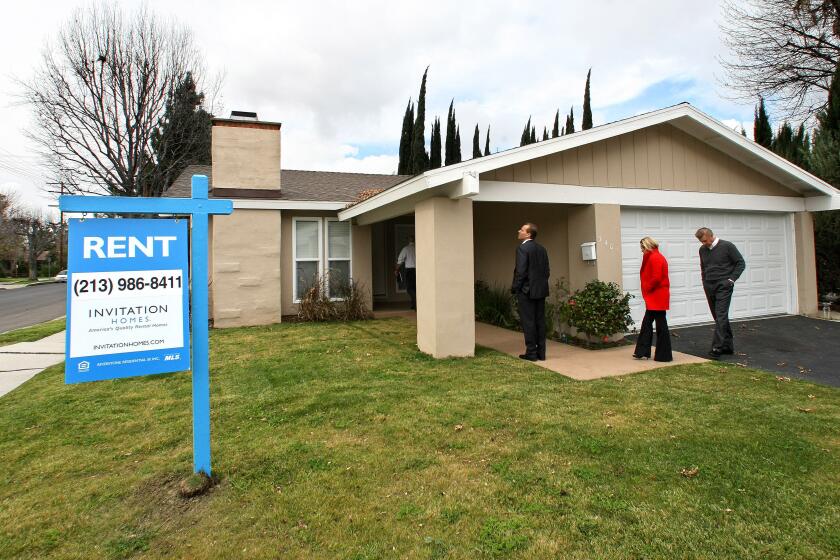O.C. Diocese Is Accused of Reneging
A molestation victim said this week he resigned from a sexual abuse review board formed by the Roman Catholic Diocese of Orange to protest what he called the church’s failure to live up to its zero-tolerance policy.
The man, who had been sexually abused by a priest, cited two recent cases that came before the Sexual Misconduct Oversight and Review Board. He contended that church officials ignored the letter or spirit of a 2001 declaration that the diocese would remove any employee -- clergy or lay -- deemed guilty by church officials of sexual abuse, even in cases decades old.
In one instance, a choir director convicted of lewd conduct with a minor 18 years ago was allowed to work at three parishes after church officials discovered the conviction this year. The former board member said church officials also allowed a cleric who admitted viewing child pornography on his computer to remain a priest in the diocese.
In response to a reporter’s inquiry, diocesan officials said they told Auxiliary Bishop Jaime Soto on Monday about the choir director’s abuse of a minor and the prelate ordered him fired Tuesday.
“I didn’t see any other outcome possible,” said Soto, adding that the termination was “important because it was becoming a public matter and we need to keep our credibility.”
A church spokeswoman said neither Soto nor Bishop Tod D. Brown, who is on vacation, knew until this week that the director had pleaded guilty in 1985 to three felony counts of lewd conduct with a 16-year-old boy. At the time, he was 35 and married.
The conviction was uncovered in April because of now-mandatory fingerprinting of diocesan employees.
In his June resignation letter to the oversight board, the board member -- whose name is being withheld because The Times does not name victims of sexual abuse without their consent -- complained about the church’s handling of the two cases: “As you are aware, I have expressed significant frustration and concern over the diocese’s failure to take decisive and appropriate action with respect to certain cases reviewed by the board.... I feel my voice is being ignored.”
But Soto said in a prepared statement Wednesday that the diocese “continues to enforce a zero-tolerance policy in cases of sexual misconduct with minors” and that church officials were pursuing a “deliberative process” interrupted by the former board member’s disclosures about the cases.
Diocesan officials said the priest accused of viewing child pornography on his computer has been put on “restricted ministry” within the diocese, allowing no contact with minors, because church officials said the offense didn’t fall under its zero-tolerance sexual abuse guidelines.
Board members were told, the former member said, that law enforcement authorities in Idaho, where the cleric had been sent because of a sexual transgression involving a woman, had investigated the child porn report and didn’t file charges.
Church officials said that, contrary to the former board member’s assertions, the child porn case was still under review, more information was being gathered and a final decision hasn’t been made. The board’s role is to review the diocese’s most sensitive cases and make recommendations to the bishop for final action.
Shirl Giacomi, chancellor of the diocese, said the case is more complex than most sexual misconduct investigations because it involves viewing child pornography and not physical abuse of a minor.
“We share the concerns about this particular priest; they do not fit the criteria for mistreatment of minors,” she said.
The resignation leaves the board with no one representing victims of sexually abusive priests. The board now has four independent lay members, a priest and a nun.
Last year, church officials appointed two victims of such abuse, after the church’s national sex abuse scandal broke, to serve as victim advocates on the board.
The other victim on the board, Joelle Casteix, 32, resigned in December, calling it “a public-relations sham preoccupied with protecting the good names of the priests.” Casteix said the handling of the two cases cited by the second victim advocate member to quit only confirmed what she saw while on the board.
The diocese agreed to adopt the zero-tolerance policy as part of a $5.2-million molestation settlement in 2001 of a case involving Ryan DiMaria, who alleged that he was sexually abused by Michael Harris, once one of Orange County’s most popular priests, who had served as principal at two Catholic high schools.
Bishop Brown has assured the public that the diocese was strictly following the policy. Six priests were let go or suspended after old allegations of sexual abuse emerged during the past two years. Church officials said three lay employees were let go in the past year because fingerprinting had revealed felony convictions.
DiMaria, who insisted on the zero-tolerance policy, said he was outraged at the diocese’s handling of the latest misconduct cases to emerge.
“There needs to be change in the regime,” said DiMaria, now a Costa Mesa attorney who handles sexual abuse cases. “Over and over again, they showed their inclination to lie about molesters, to lie about the way things transpired and to lie that they were handled appropriately.”
Giacomi said the church has pursued the cases in good faith and that complexities in both cases slowed the investigative process.
In 1996, the choir director had received from the courts a “certificate of rehabilitation,” a legal petition submitted by then-Los Angeles Dist. Atty. Gil Garcetti that is needed to receive a pardon from the governor. The pardon was refused, though he no longer needed to register as a sex offender. A change in the law made later that same year no longer allows sex offenders to be removed from the sex offender registry because of certificates of rehabilitation.
He had worked in the Orange Diocese since 1987, the year after his conviction. Before being fired, he worked at three parishes: St. Angela Merici Church in Brea, St. Martin de Porres Church in Yorba Linda and St. Joseph Church in Placentia.
The board member who resigned said the board heard a second case involving child pornography found on a computer used by a priest. Because others had access to the computer, meaning that the pornography could have been someone else’s, the priest was allowed to stay in closely supervised ministry.
Giacomi said Orange County authorities investigated and declined to file charges. She said the cleric doesn’t work directly with minors.
*
Times staff writer Ashley Powers contributed to this report.
More to Read
Sign up for Essential California
The most important California stories and recommendations in your inbox every morning.
You may occasionally receive promotional content from the Los Angeles Times.









